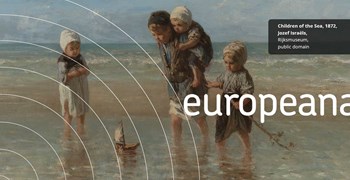Fighting for new music? Gustav Mahler and the Second Viennese School
Today, the world knows Gustav Mahler primarily as a composer. During his lifetime at the beginning of the 20th century this was all quite different. Mahler in the first place was known as an internationally respected conductor, while his own work as a composer was not much recognized for a long time …
There are not many known recordings of Mahler’s own works from the first half of the 20th century. It was not until the 1960s that his compositional work was recorded extensively (Leonard Bernstein was one of the first to rediscover Mahler’s compositions). Although he almost faded into oblivion for a long time, Mahler as a “late-romantic” had a strong influence on the main composers of the so-called “Second Viennese School”, a group of composers that gathered around Arnold Schönberg, who admired Mahler’s work and marked a transition to a new era in music history.
Listen to an excerpt of “Adagietto” from Symphony No. 5, composed by Gustav Mahler. The Vienna Philharmonic Orchestra, Conductor: Leonard Bernstein.

Portrait of Gustav Mahler by Arnold Schönberg, 1910. Source: Arnold Schönberg Center, Vienna CC BY-SA 2.0
Mahler was a saint! (Arnold Schönberg about Mahler in 1912).
Arnold Schönberg (13.9.1874, Vienna – 13.7.1951, Los Angeles)
Schönberg met Mahler after 1903 in Vienna where he taught composition. Mahler became friends with Schönberg, he had great respect for the younger composer and his ideas and promoted Schönberg‘s music. After attending the premiere of Schönberg‘s Chamber Symphony No. 1 in 1907, he allegedly said to his wife Alma: “I don’t understand his music, but he is young; maybe he is right” („Ich verstehe seine Musik nicht, aber er ist jung; vielleicht hat er recht“).
Listen to an excerpt of “Sechs kleine Kavierstücke”, op. 19 Nr. 6 (Six Little Piano Pieces), composed by Arnold Schönberg. Piano: Maurizio Pollini.
Arnold Schönberg’s recordings on Europeana.
Alban Berg (9.2.1885, Vienna – 24.12.1935, Vienna)
Alban Berg studied with Arnold Schönberg since 1904. After six years, he started his career as a composer, combining influences of Mahler‘s late-romantic work and Schönberg‘s free tonality.
In 1913 the premiere of two of his “Five Orchestral Songs on Picture-Postcard Texts by Peter Altenberg”, op. 4 conducted by Arnold Schönberg were part of the so-called “Skandalkonzert”. The audience at the Musikverein was shocked by the music, while Berg’s composition was played, people started fighting within the concert hall and the concert had to be canceled. This evening was one of the biggest musical scandals at the beginning of the 20th century in Vienna. Berg‘s operas “Wozzeck” and “Lulu”, which were the first operas completely written in twelve-tone technique however marked a turning point in opera history and brought Alban Berg wide public success.

Portrait of Alban Berg by Emil Stumpp, 1927. Public domain
Listen to an excerpt of Sonata op.1, composed by Alban Berg. Piano: Albert Sassmann
Alban Berg’s recording on Europeana.

The “Skandalkonzert” of 1913. Newspaper Cartoon. Newspaper “Die Zeit”, 6th of April 1913, Public domain
Anton von Webern (3.12.1883, Vienna – 15.9.1945, Mittersill)
Also on the programme of the “Skandalkonzert” were the “Six Pieces for Orchestra, Op. 6” composed by Anton von Webern, also a member of the Second Viennese School’s inner circle. Along with Alban Berg he studied composition with Arnold Schönberg and was also a great admirer of Mahler‘s work. His compositions were considered the most extreme of the Second Viennese School.

Anton von Webern in Stettin in 1912. Public domain
Listen to an excerpt of “Im Sommerwind”, composed by Anton Webern. The Cleveland Orchestra, Conductor: Christoph von Dohnanyi.
Anton Webern’s recordings on Europeana.
Alexander von Zemlinsky (14.10.1871, Vienna – 15.3.1942, Larchmont/New York)
“Four orchestral Songs on poems by Maeterlinck”, a composition of Alexander von Zemlinsky, were also presented at the “Skandalkonzert”.
Alexander von Zemlinsky gave Schönberg lessons in counterpoint, became his close friend (and after marrying his sister also his brother-in-law) and – to close the circle to Gustav Mahler again – had fallen in love with and taught composition to Alma Schindler, who then married Gustav Mahler in 1902.

Portrait of Alexander Zemlinsky. Around 1900, Public domain
Listen to an excerpt of “Gib ein Lied mir wieder”, composed by Alexander Zemlinsky. Piano: Cord Garben, Mezzosoprano: Anne Sofie von Otter.
Alexander von Zemlinsky’s recordings on Europeana.
At the beginning of the 20th century, the music scene of Vienna was a creative melting pot of different cultures and visionary ideas and – though igniting vigorous debates and rejection at the time – later gained worldwide recognition and was formative for the whole century and onwards.
by the Österreichische Mediathek













